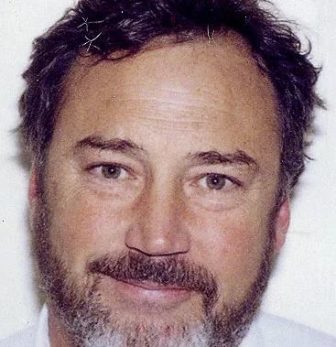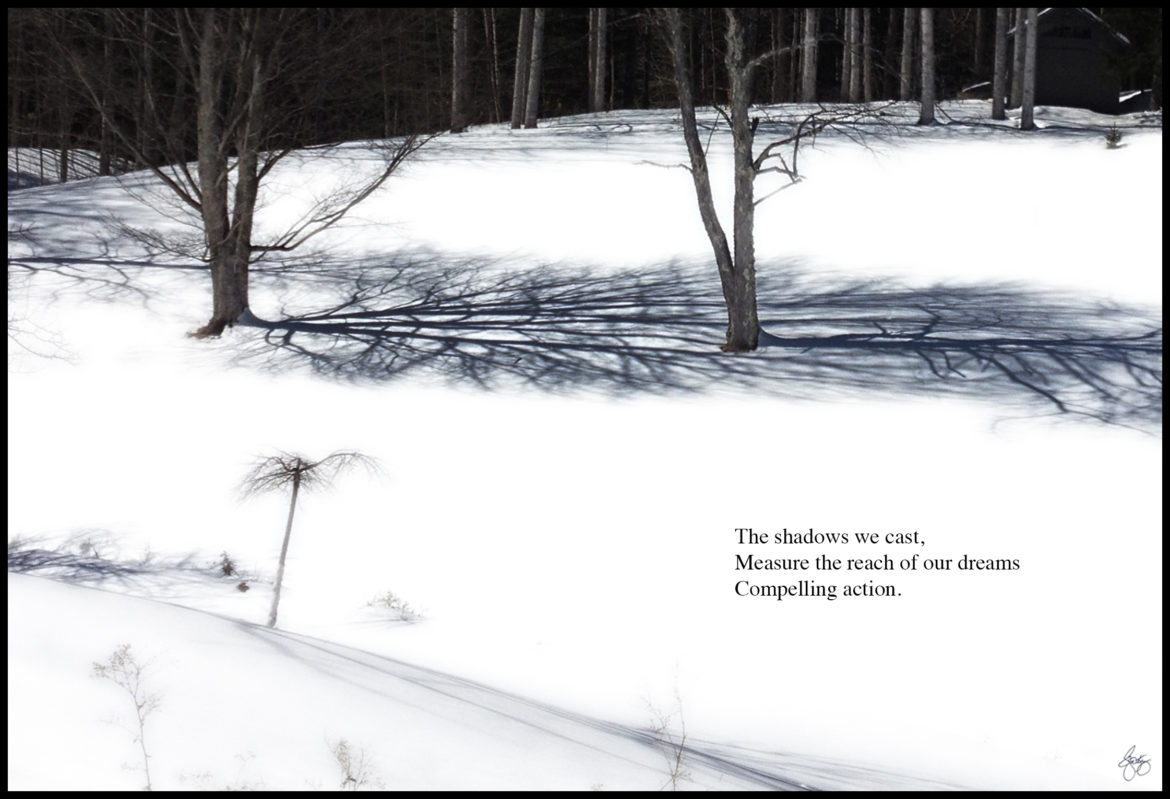The View From Rattlesnake Ridge, Ruminations from an Unabashed Optimist, an Environmental Patriot and a Radical Centrist
By Wayne D. King
Here in the shadow of Rattlesnake Ridge we’ve been treating 16- and 17-year-olds as adults for a long time. Rural life sometimes works that way. Especially now when changes in the world of work present such disruptive challenges to families and individuals.

Wayne D. King of Rumney
Not far from us one particular family we know is one example. Dad walked out and left Mom and a bunch of kids to fend for themselves. He had done pretty well for himself and he could have helped his family but he chose not to and Mom could not afford the “luxury” of hiring an attorney to press her case. So the rule in this household was that if you were 16 or older, you worked and contributed to the cost of the mortgage, food and fuel.
If you think this is an unusual circumstance, you need to get out more. A lot of families, especially those within the precariat, find this a necessary avenue to financial survival.
The truth is that we expect more and more of our young people once they reach the age of 16 and more and more of the legislation that winds its way through state and federal governments impacts their lives – when they have little power to affect it.
In my last “View from Rattlesnake Ridge” column ( http://bit.ly/RestoreCenter ) I suggested as an afterthought that we should lower the voting age to 16, but then I watched as a group of mostly 16- and 17-year-olds orchestrated the largest peaceful protest in American and World history with “The March for Our Lives” and now I want to put it right up front: It’s time to give 16- and 17-year-old Americans the right to vote.
Although a large number of politicians and “Adults” vied for the opportunity to address the crowd of more than 800,000 people on the Mall in Washington, the students who organized the march made it clear that this was going to be their moment, and it WAS. I stood and watched as these students demonstrated a sense of civic involvement far greater than most of their elders.
Life has changed and in an Age of Accelerations – a term coined by Thomas Friedman – we should, at a minimum, begin debating the merits of allowing 16- and 17-year-olds to vote. When a 16-year-old is accused of a violent crime they are, almost without exception, treated as an adult. We place no restrictions at all on the number of hours they may work. In most states they are allowed to marry – though from experience I wish they wouldn’t.
A wealth of research on the difference between the mental faculties of 16 and 17-year-olds and those of their “elders,” even the only-slightly older ones, provides evidence that the 16- and 17-year-olds are just as capable of making informed decisions as their 18- to 21-year-old peers. Even more interesting is that research shows that 16- and 17-year-olds are much more likely to participate in the democratic process than those between the ages of 18 and 25.
In 2011, Norway decided to test allowing 16- and 17-year-olds to vote. They found that participation (voting) among the 16- and 17 year-olds was closer to the average of adults 40 to 60 and well ahead of the numbers for those between the ages of 18 and 25. According to a University of Vienna study, a similar experiment in Austria yielded similar results. Both of these countries now allow 16- and 17 year -olds to vote.
Now there are probably a lot of reasons for this differential, not the least of which is that 18- to 25-year-olds are in the most turbulent time of their lives with changes coming at them at the speed of light, but the fact remains that where ever genuine social science has been done on this issue 16- and 17-year-olds come out on top.
According to Zachary Crockett, who has done some of the most compelling research for VOX, the reason that 16 is a preferable age for allowing young people to vote (my characterization – not his) is that 16 and 17 are better ages for forming civic habits than 18. Sixteen and 17-year-olds are in High School and most are living in homes that provide them with a reasonable level of security. According to Crockett: “Entrenched both in familial and institutional support groups, 16-year-olds are in a better place to form long-lasting voting habits than 18-year-olds — but only if the right to vote is accompanied by a robust civics education.”
This civics education can be delivered by schools – which is essential in my opinion – or by engagement with civically minded peers and adults – both of which were true of the students who are driving the the “March for Our Lives” and its outgrowth the “Never Again” movement. It is also what moved the Parliament of Scotland to UNANIMOUSLY vote to give 16- and 17 year-olds the right to vote after testing it with the recent vote on Independence.
The voting age nationally is 18 but the US constitution was crafted to (wisely) leave the age of voting to the states. Some states are experimenting with allowing younger voters to participate in caucuses and local elections. Perhaps the movement to allow 16- and 17-year-olds the right to vote will be driven by the states and not the lugubrious Federal Government that we have now. But that is a matter for another column . . . or several other ones.
For now, I for one am going to become an outspoken advocate for giving 16- and 17-year-olds the right to vote.
If you’d like to join in – or even to cast your vote for the other side, weigh in at #Let16Vote.
——-
#Precariat, #TheRadicalCentrist, #marchforourlives, #NeverAgain
About Wayne D. King: Wayne King is an author, artist, activist and recovering politician. A three term State Senator, he was the 1994 Democratic nominee for Governor and most recently the CEO of MOP Environmental Solutions Inc., a public company in the environmental cleanup space. His art is exhibited nationally in galleries and he has published three books of his images. His most recent novel “Sacred Trust” a vicarious, high voltage adventure to stop a private powerline has been published on Amazon.com as an ebook with the paper edition due soon. He lives in Rumney at the base of Rattlesnake Ridge. His website is: http://bit.ly/WayneDKing
